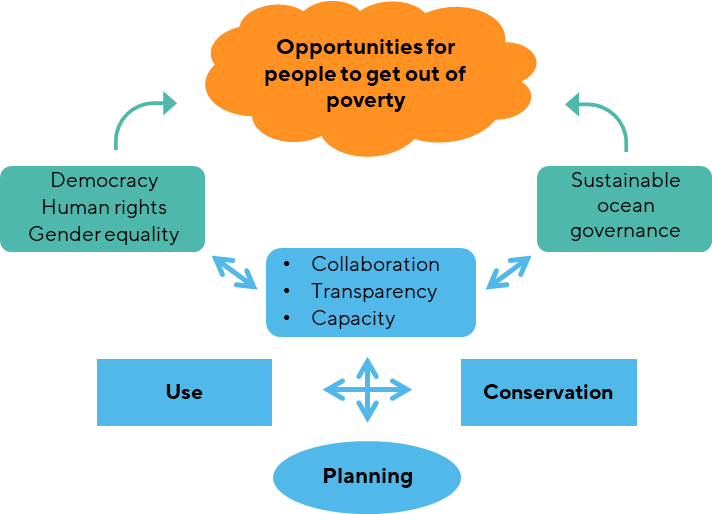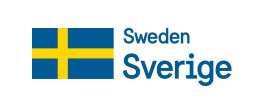About SwAM Ocean
SwAM Ocean is our program for development cooperation. With SwAM Ocean we aim to increase the opportunities for people to get out of poverty thanks to sustainable use of the sea.
SwAM Ocean – improving lives through sustainable use of the ocean
We can support your efforts to increase the economic benefits from the sustainable use of marine resources.
Together, we can strengthen the capacity to plan the future of the ocean, to take care of the ocean and to use the ocean – for the joy and benefit of all.
We can support your efforts to increase the economic benefits from the sustainable use of marine resources.
You get
You get support, to:
- Strengthen capacity in marine management
- Increase transparency and participation in marine and fisheries management processes
- Enhance cooperation between administrative areas, sectors and stakeholders which promote efficient and harmonized marine management
We bring
We bring hands-on experience and expertise in policy, planning and implementation as a government agency, on four themes:
- Marine spatial planning
- Sustainable use of marine resources, with focus on small-scale fisheries
- Conservation measures, with focus on marine protected areas
- Collaboration between management areas, sectors and stakeholders
We focus on Eastern Africa and the Western Indian Ocean.
Contact us, let’s find out what we can do together.
Not a fund
SwAM Ocean is not a fund, nor a donor. Instead, SwAM Ocean rests on collaboration. Together with you, we build experience and bring change for the better.
Why and how
Purpose and Aims
The program SwAM Ocean departs from key Swedish and international policies and frameworks, most importantly:
- Global Goals for sustainable development and Agenda 2030
- Swedish Policy for Global Development
- Sida’s vision “Every person’s right and possibility to live a life in dignity”
SwAM Ocean seeks to address the challenges pertained to poverty alleviation through the sustainable use of marine ecosystem services, with a focus on coastal areas in Least Developed Countries (LDCs) and Small Islands Developing States (SIDS).
Planning is a key measure
We identify long-term planning as a key measure that enables a sustainable management that can balance access to, and conservation of, marine resources in a way that both strengthen coastal and marine environments and communities and contribute to poverty reduction and local economic growth.
Essential prerequisites for achieving sustainable management are increased levels of capacities, transparency and participation as well as cross sectoral cooperation.

Long-term planning is key as it enables sustainable management that can balance use and conservation, which strengthens both environments and communities
To increase economic benefits from sustainable use of marine resources
At impact level we seek to contribute to Global Goal 14 with a special focus on target 14.7:
“By 2030, increase the economic benefits to small island developing States and least developed countries from the sustainable use of marine resources, including through sustainable management of fisheries, aquaculture and tourism.”
Three cross-cutting goals on outcome level for us are:
- Strengthened capacity in marine management contributes to the sustainable use of marine resources and increased local economic growth.
- Increased transparency and participation in marine and fisheries management processes enable enhanced influence for resource-poor stakeholders and rights holders in coastal areas.
- Enhanced cooperation between administrative areas, sectors and stakeholders promote more efficient and harmonized marine management for the benefit of poor communities in coastal areas.
Via capacity development, advocacy, policy development and expert input
We work through capacity development activities, advocacy, policy development and expert input.
Our primary collaboration partners are national governmental stakeholders involved in ocean governance and fisheries management. SwAM Ocean also work through selected global and regional marine environmental and fisheries management processes.
We apply a rights based approach, and gender equality is addressed both as a specific goal in the program and through activity mainstreaming.
Long-term partnerships with well-established global stakeholders is an important strategy for reaching our goals.
We develop and adjust our work over time to ensure effective and relevant implementation.
Financed by Sida
SwAM Ocean is financed by Sida, the Swedish International Development Cooperation Agency. We have a budget of SEK 43 million over five years.
SwAM Ocean runs from 2019 to 2023.

Get our results at
www.havochvatten.se/swam-ocean



